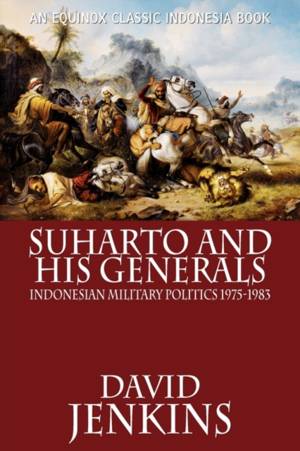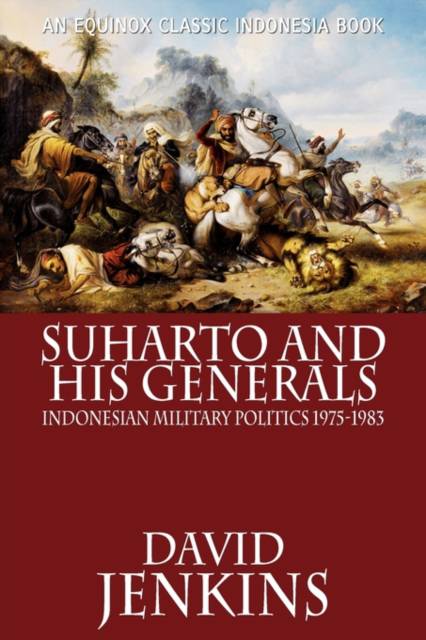
- Afhalen na 1 uur in een winkel met voorraad
- Gratis thuislevering in België
- Ruim aanbod met 7 miljoen producten
- Afhalen na 1 uur in een winkel met voorraad
- Gratis thuislevering in België
- Ruim aanbod met 7 miljoen producten
Omschrijving
In writing this monograph I have been guided by two separate but interrelated goals. The first has been to provide an historical-descriptive record of the "challenge" posed to President Suharto within the Armed Forces of the Republic of Indonesia (ABRI) during the period 1975-82 and the debate that developed over ABRI's role in society. Although this debate sprawled across the whole canvas of military involvement in society, it can be said to have focused essentially on two key issues.
The first, which was debated with considerable vigor during the period 1977-80, involved ABRI's relations with other social-political groups in society, and in particular the political parties. The center of this debate was the "contradiction" between ABRI's claim to be above all groups in society and the reality of its continuing support for Golkar, the political grouping which held a majority of the seats in the DPR (Parliament). Due largely to the intervention of the president, this debate was resolved in favor of the status quo and by 1980 it appeared unlikely that there would be any substantial changes during the remainder of the Suharto presidency.
The second issue, which became of increasing importance after 1980, centered on the appointment of military officers to nonmilitary functions. There were in the mid-1970s more than 20,000 military men serving in a kekaryaan (nonmilitary, or "functional") capacity, as ministers, ambassadors, parliamentarians, senior executives in government corporations, bankers, senior civil servants, university rectors, provincial governors, subdistrict heads, and even village headmen. Answerable to the chief of staff for functional affairs (Kaskar), they acted as "reinforcing rods" to ensure that the bureaucracy was responsive to the commands of those at the top-a role that was not unlike that of the Communist Party in many Communist states. In the view of the critics, ABRI's heavy involvement in kekaryaan activities, although understandable in terms of recent Indonesian history, was excessive and needed to be scaled back. On this front, some government concessions seemed possible, if only because the armed forces were short of manpower. Even so, any cutback in the kekaryaan ABRI was likely to be both slow and from the bottom up, with the commanding heights of the system remaining firmly in the hands of the military leaders.
Specificaties
Betrokkenen
- Auteur(s):
- Uitgeverij:
Inhoud
- Aantal bladzijden:
- 332
- Taal:
- Engels
Eigenschappen
- Productcode (EAN):
- 9786028397490
- Verschijningsdatum:
- 10/01/2010
- Uitvoering:
- Paperback
- Formaat:
- Trade paperback (VS)
- Afmetingen:
- 152 mm x 229 mm
- Gewicht:
- 485 g

Alleen bij Standaard Boekhandel
Beoordelingen
We publiceren alleen reviews die voldoen aan de voorwaarden voor reviews. Bekijk onze voorwaarden voor reviews.












